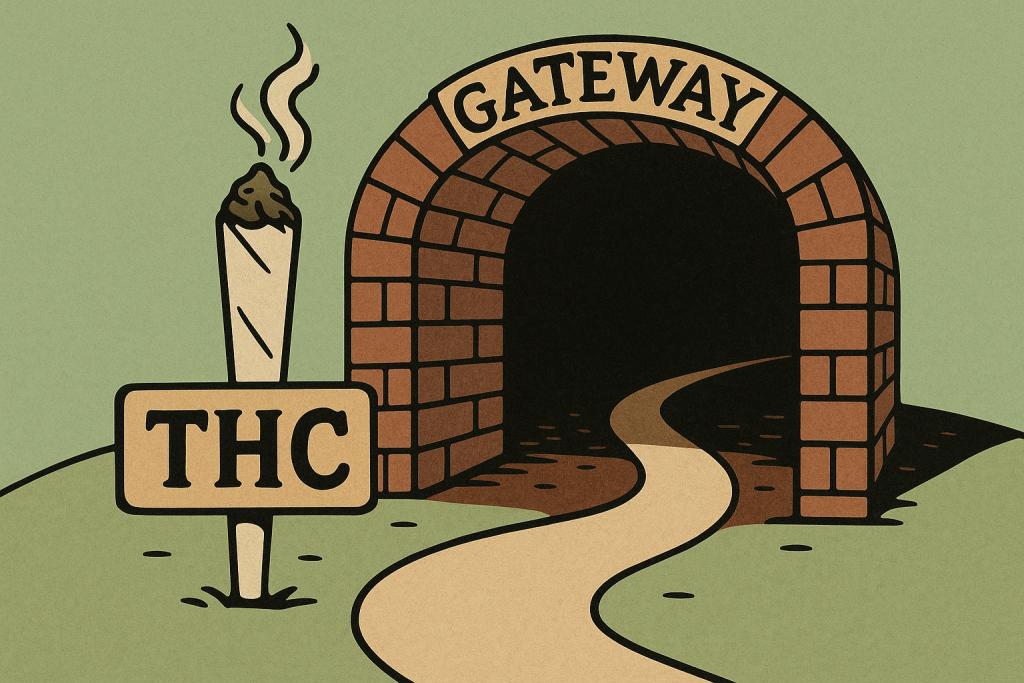The question of whether THC, the primary psychoactive component in cannabis, acts as a gateway drug has been the subject of intense debate for years. As we navigate through 2025, this discussion remains as relevant as ever, with new research shedding light on the complexities of cannabis use and its potential implications. This blog post delves into the latest findings and offers guidance on recognizing when THC use might require professional intervention.

The Marijuana Gateway Hypothesis: What Does the Research Say?
The Evidence Against THC as a Gateway Drug
Recent studies have challenged the traditional notion that THC acts as a gateway drug. A rigorous analysis by the National Organization for the Reform of Marijuana Laws (NORML) found that marijuana is not a reliable precursor to the use of more harmful substances. Their findings suggest that prohibition policies may have limited effects on reducing illicit drug use (NORML).
Further supporting this perspective, the University of Colorado’s 2023 study reported that legalizing recreational cannabis did not lead to an increase in substance use disorders or the use of other illicit drugs among adults (Checkup and Choices).
Arguments Supporting the Gateway Hypothesis
Conversely, some research, including a systematic review from 2021, suggests that cannabis might serve as a gateway to opioid use, though this hypothesis is not universally accepted (Checkup and Choices).
The Centers for Disease Control and Prevention (CDC) acknowledges this controversy, noting that most cannabis users do not progress to harder drugs, but the debate continues (CDC).
THC Use: Indicators for Seeking Treatment
While the gateway drug debate continues, it is crucial to focus on the individual impact of THC use. Here are some key indicators that might suggest the need for treatment:
Frequency and Quantity of Use
Frequent or heavy use of THC can lead to dependence, known as cannabis use disorder. If THC consumption becomes a daily habit or the quantities increase over time, it may be time to consider professional help.
Impact on Daily Life
When THC use starts to interfere with one’s ability to function at work, school, or in personal relationships, it is a clear sign that intervention might be necessary. The disruption of daily responsibilities and social connections can be detrimental (NIDA).
Withdrawal Symptoms
Experiencing withdrawal symptoms such as irritability, anxiety, or changes in appetite upon reducing or stopping THC use can indicate a dependence that requires treatment.
Mental Health Concerns
Cannabis use has been linked to exacerbating mental health conditions, including anxiety and depression. If THC use is worsening these issues, seeking professional advice is advisable (NIMH).
Family History and Genetic Factors
A family history of substance use disorders may increase susceptibility to cannabis-related problems. Those with such backgrounds should be vigilant about their THC consumption.
Navigating THC Use Responsibly
Understanding the complexities of THC use and its potential role as a gateway drug requires careful consideration of current research and individual circumstances. At Luxury Rehab, we are dedicated to connecting individuals with the right resources and support for addressing substance use concerns. If you or someone you know is struggling with THC use, consulting a healthcare provider or a substance abuse specialist can provide the guidance needed to take the next steps.
References
- Marijuana and the Gateway Theory
- A New Roadmap for Cannabis and Cannabis Policy Research
- Is Marijuana Really A Gateway Drug?
- Cannabis (Marijuana)
- Cannabis and Other Drugs
- National Institute of Mental Health (NIMH)
- Substance Abuse and Mental Health Services Administration (SAMHSA)
- American Psychological Association (APA)
- Journal of Addiction Medicine
- The Lancet Psychiatry
By staying informed and proactive, individuals can make educated decisions about their THC use and seek help when needed, ensuring a healthier and more balanced life.




